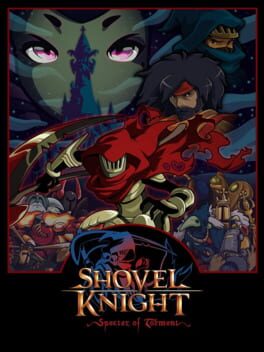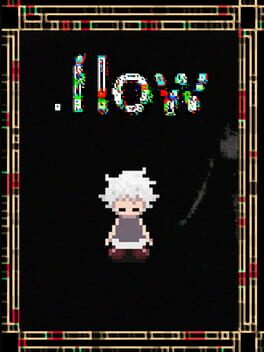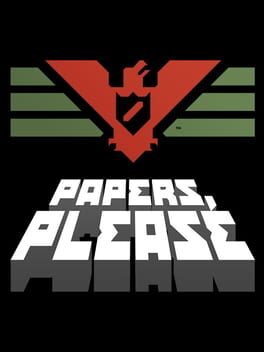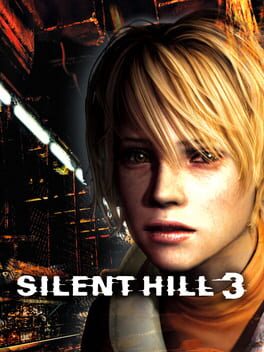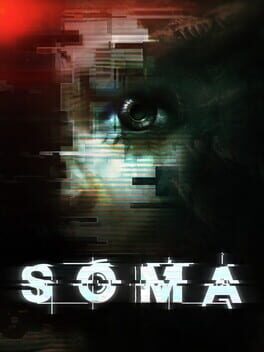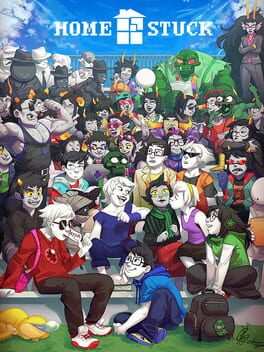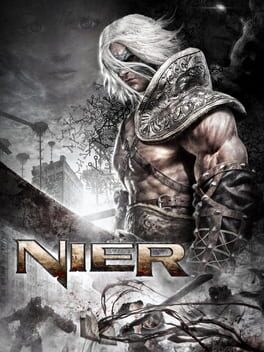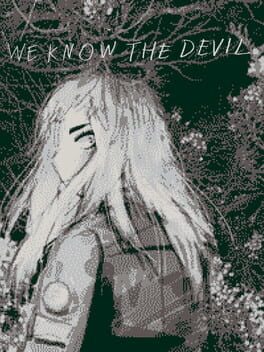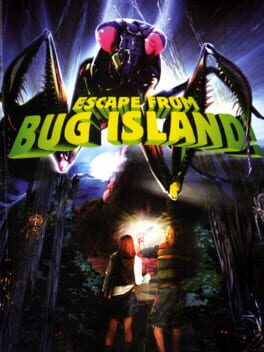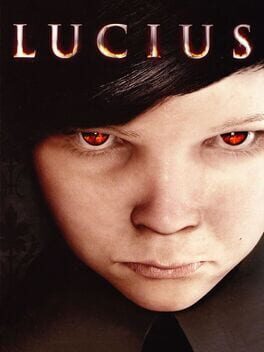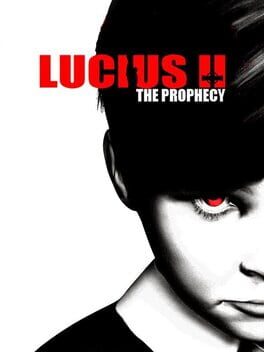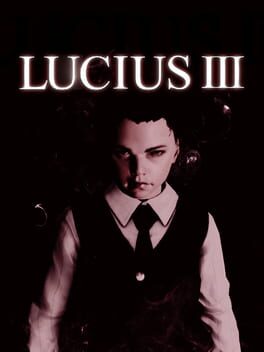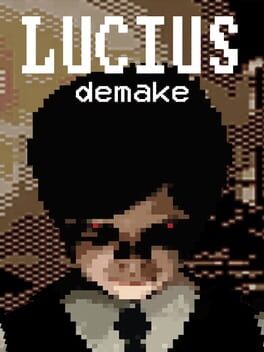SeventhJohan
6 reviews liked by SeventhJohan
.Flow
2009
After writing my previous review (which is no longer up) I had this game on my mind. It had been a while since I fully finished it, so I replayed it and it was incredible. My first time through it didn't quite click with me, I just saw it as "Yume Nikki but gorey", but replaying it now gave me a whole new perspective, and I wanna go a little more in-depth, so excuse the long review.
My biggest mistake was constantly comparing this to Yume Nikki, instead of viewing it as its own game. Despite the basic gameplay being the same, "explore dreams to find effects", this game is wildly different in its atmosphere and design. If Yume Nikki is about bizarre dreams and trying to piece together what they may mean, .Flow is about nightmares you desperately want to forget. Sabitsuki has a story, a story which is told far more clearly than Madotsuki's. A lot of things are still left unclear, but you can figure out the basics of what's going on just going off the game's content.
The gameplay is also pretty differrent. There's far less voids with weird backgrounds and random foreground elements, the places in .Flow are a lot smaller and more cohesive, which makes navigation easier, and also makes these places way more interesting. Unlike Yume Nikki, where some effects are really out the way, in .Flow I managed to find every effect by simply exploring. Some are pretty hidden, sure, but you will find them eventually. For the record, I forgot the locations of the majority of the effects, but I managed to find them regardless, and I was also able to find them with no guides my first time through.
The atmosphere is horrifying, with the droning music making you feel hollow inside, and the environments being incredibly creepy. I've never liked body horror, since I don't find it particularly scary, and that was my main complaint my first time through, but now I can see just how brilliantly this game uses body horror. from the Kaibutsu's bloody, mangled faces, to an area seemingly made of flesh, the faceless maid, the hospital, and dear god the dying girls event. The entire game made me feel empty, uneasy, and at times genuinely horrified, yet it kept pulling me back.
I'm gonna get into mild spoilers now, nothing major, but if you wanna know nothing about what happens after collecting all the effects, stop reading and play this game, it's a masterpiece I wish I could've appreciated earlier.
Okay, now to discuss the final stretch of the game. I had never felt more dread in a game than I felt when I was playing as Rust. Through the game you'll find a number of areas that Sabitsuki cannot enter normally, but you can finally view them as Rust, and the mere thought of entering them made my skin crawl, despite knowing what was in those rooms. Those things that chase you, whatever the hell they are, made me feel genuine panic for reasons I'm not quite sure of, and the final room of the game? No words, absolutely no words.
TLDR: .Flow is like Yume Nikki crossed with Silent Hill, exploring nightmares to piece together the story of the protagonist, all of which done in a wonderfully horrifying way. An absolute must-play for Yume Nikki fans and horror fans alike. Literal 10/10.
My biggest mistake was constantly comparing this to Yume Nikki, instead of viewing it as its own game. Despite the basic gameplay being the same, "explore dreams to find effects", this game is wildly different in its atmosphere and design. If Yume Nikki is about bizarre dreams and trying to piece together what they may mean, .Flow is about nightmares you desperately want to forget. Sabitsuki has a story, a story which is told far more clearly than Madotsuki's. A lot of things are still left unclear, but you can figure out the basics of what's going on just going off the game's content.
The gameplay is also pretty differrent. There's far less voids with weird backgrounds and random foreground elements, the places in .Flow are a lot smaller and more cohesive, which makes navigation easier, and also makes these places way more interesting. Unlike Yume Nikki, where some effects are really out the way, in .Flow I managed to find every effect by simply exploring. Some are pretty hidden, sure, but you will find them eventually. For the record, I forgot the locations of the majority of the effects, but I managed to find them regardless, and I was also able to find them with no guides my first time through.
The atmosphere is horrifying, with the droning music making you feel hollow inside, and the environments being incredibly creepy. I've never liked body horror, since I don't find it particularly scary, and that was my main complaint my first time through, but now I can see just how brilliantly this game uses body horror. from the Kaibutsu's bloody, mangled faces, to an area seemingly made of flesh, the faceless maid, the hospital, and dear god the dying girls event. The entire game made me feel empty, uneasy, and at times genuinely horrified, yet it kept pulling me back.
I'm gonna get into mild spoilers now, nothing major, but if you wanna know nothing about what happens after collecting all the effects, stop reading and play this game, it's a masterpiece I wish I could've appreciated earlier.
Okay, now to discuss the final stretch of the game. I had never felt more dread in a game than I felt when I was playing as Rust. Through the game you'll find a number of areas that Sabitsuki cannot enter normally, but you can finally view them as Rust, and the mere thought of entering them made my skin crawl, despite knowing what was in those rooms. Those things that chase you, whatever the hell they are, made me feel genuine panic for reasons I'm not quite sure of, and the final room of the game? No words, absolutely no words.
TLDR: .Flow is like Yume Nikki crossed with Silent Hill, exploring nightmares to piece together the story of the protagonist, all of which done in a wonderfully horrifying way. An absolute must-play for Yume Nikki fans and horror fans alike. Literal 10/10.
Papers, Please
2013
Silent Hill 3
2003
Content warning for discussions of misogyny, child abuse, reproductive rights, and sexual and physical assault.
Silent Hill 2 deconstructed Silent Hill. Silent Hill 3 deconstructs Silent Hill 2.
The entire ethos of Silent Hill 2 uses Silent Hill as a place of punishment. Rather than being a town filled with monsters brought forth by a cult as it was in the first game, the Silent Hill of Silent Hill 2 is a functional purgatory. It is a place where the guilty must face constructs born of their own sins, taking shape specifically to torment those who have done wrong; children are unaffected, those who can work through their guilt may survive, and those who cannot (or will not) overcome it are punished further with death.
The town in Silent Hill 3 exclusively hurts the innocent.
Heather has done nothing wrong. The worst she’s done is take up smoking, and she’s dropped the habit long before the events of game kick off. She keeps to herself, she doesn’t seem to have any vices, she isn’t promiscuous — which itself is not a bad thing to be, but it’s common knowledge that the horror genre generally doesn’t look too fondly on the libertine — and it’s hard to find something that anyone could fault her for. Why, then, has this world dictated that she must suffer?
Because Heather is a woman.
Technically speaking, she’s only a girl. She’s still just 17. But the horrific acts that men have historically committed against women — stalking, abuse, physical and sexual violence — don’t have a minimum age. A poll conducted in 2018 found that 81% of all female respondents had faced sexual harassment; roughly 27% of those women said that their first time being sexually harassed was between the ages of 13 and 17. 16% said they were as young as 11 to 13 years old. None of these cases happened because they were deserved. There was no justification. There will never be one, because there cannot be one.
But they were women, and for those who are willing to commit these acts, that’s enough of a reason.
I am not myself a woman, nor have I ever identified as one. I’m hesitant to explain my feelings towards this game and the world that it reflects back against ours, because I think it’s easy to come across as a capital-M, capital-A Male Ally who props my voice above those who don’t share the luxury of having a platform like my own. There's a line that must be walked between a point of demonstrating how awful the lived experience of many women is for those who are ignorant, and a point of spouting data and surveys as though these experiences can or should be boiled down to numbers rather than the people behind them. I am an outsider looking in; none of this has happened to me. I don’t face the ever-present threats of patriarchal society in the same way that women do. I’ve never been afraid to walk home by myself. I’ve never had to think my way down a list of what might happen if I reject a guy’s advances. I’ve never been concerned that my government could strip me of my bodily autonomy.
These are not aspects of my reality, but it is the reality of many.
Silent Hill 3 is not a subtle game, nor should it be. Our introduction to Douglas has him silently following behind our protagonist, chasing her into the bathroom and forcing her to escape through an open window; many of the monsters evoke phallic, fetal, or imposing masculine symbols through their appearances; Heather carries a pocket knife for protection on her person long before she becomes aware of the Otherworld. The character of Stanley Coleman is a stalker obsessed with Heather, skulking around to follow her through the hospital and leaving notes to confess his unrequited love for her; always boiling beneath his adoration and fixation is the unspoken threat that he will hurt Heather and/or the people around her if she isn't willing to reciprocate his feelings.
Perhaps most blatant (and thus what guides people into believing that this is the only theme of the game) is the unwanted pregnancy parallel. Heather has been selected against her will to be the one who will give birth to God, constantly being told that she doesn't understand the importance of her role when she says she doesn't want to. The one person who she can rely on to respect her choice — her father, Harry — is unceremoniously killed as retribution for Heather's unwillingness to carry God to term. And the end of the story, moments before Heather is about to be killed by Alessa to stop God's birth, Heather swallows a substance that causes her to expel the fetus from her body.
Silent Hill 3 is a horror story about being a woman.
Heather is an outstanding character. Despite her running through as close to Hell as one could imagine, she refuses to succumb to her environment. She fights. She struggles. She makes jokes and glib observations about the surroundings, studying everything that she can get her hands on to figure out how to survive and push forward. She's funny, and she isn't afraid to call people out on their bullshit directly to their face.
But there's a quiet moment at the middle of the game where she's sitting in Douglas's car on the way to Silent Hill, and she tells him the story of her adoption. She tells him how much she misses her dad, and that she never got the chance to tell him how glad she was to be his daughter.
And her heart just breaks.
No game made in the twenty years since this came out has been able to replicate the sheer amount of pain and exhaustion on her face while she stares out the window and chokes back tears. It's brutal. Her pursuits of revenge and closure and freedom mean that she cannot stop, no matter how worn she is.
A character as strong as Heather needs an equally strong supporting cast, and Silent Hill 3 is no slouch in this regard, either. The game is wonderful at creating these real, multi-faceted characters who carry with them at least one fault for every virtue. Douglas is a careless, headstrong dickhead when it comes to his private investigation work, but we gradually discover that he's a warm, damaged man who wants to be a better person than he was before his son died. Vincent is a shady, narcissistic bastard who's playing all sides for his own selfish desires, but he does legitimately help Heather put a stop to the cult's activities. Claudia is a ruthless murderer, but being abused as a child caused her to adopt a martyr mentality and throw herself wholly into her religion; the bitter irony is that Claudia perpetuates the same cycles of abuse which she suffered in the the name of bringing Paradise to Earth.
There's something to be said about how the non-Otherworld environments seem so keenly tweaked to be strange and dangerous, almost as though they're places where people aren't meant to be. An employees-only hallway in an abandoned shopping mall, an empty subway station that goes five stories underground, maintenance tunnels deep beneath the city, a derelict office building, the manifestation of a nightmare you had about an amusement park; being here feels wrong. Heather — and by extension, you — are all alone in these ethereal places, wandering around in the dark and wondering if every little creak or radio crackle is a warning of something nearby intent on doing harm. In some ways, the scenes in our world are more frightening than the ones in the Otherworld; our reality has the exact same monsters, but you wouldn't know that by looking at it.
As it stands, I'm kind of shocked that this game winds up with a general reputation of being the inferior younger sibling to its big brother, Silent Hill 2. For years I'd heard nothing besides the fact that 2 was the best entry in the series — perhaps the best horror game ever made — and none of the other entries could measure up. I love Silent Hill 2. I love the themes. I love the way it looks. I love the story of Mary and James.
But I think some people love Silent Hill 2 for the reason that it's easy to delve into. Picture in your mind the average person who would be playing games like these in the early-2000s, and then ask yourself if you think they would have an easier time immediately relating more to James or to Heather. It shouldn't be hard to figure out who, and it should be even easier to figure out why.
I think Silent Hill 3 is the better of the two.
Abortion is still de jure illegal in Japan. Those seeking to terminate a pregnancy may only do so if they can demonstrate that the pregnancy would cause a sufficient health or fiscal risk, or if their pregnancy was the result of rape. Married women require written consent from their husbands before they can even be considered. In a Japanese survey conducted during the campaign of an 86,000-signature petition to put an end to mandatory spousal consent, some 13% of women reported being forced to carry a pregnancy to term against their will.
Heather Mason took the aglaophotis in her pendant to terminate God in 2003.
Emergency contraceptives wouldn’t be legalized in Japan for another eight years.
Silent Hill 2 deconstructed Silent Hill. Silent Hill 3 deconstructs Silent Hill 2.
The entire ethos of Silent Hill 2 uses Silent Hill as a place of punishment. Rather than being a town filled with monsters brought forth by a cult as it was in the first game, the Silent Hill of Silent Hill 2 is a functional purgatory. It is a place where the guilty must face constructs born of their own sins, taking shape specifically to torment those who have done wrong; children are unaffected, those who can work through their guilt may survive, and those who cannot (or will not) overcome it are punished further with death.
The town in Silent Hill 3 exclusively hurts the innocent.
Heather has done nothing wrong. The worst she’s done is take up smoking, and she’s dropped the habit long before the events of game kick off. She keeps to herself, she doesn’t seem to have any vices, she isn’t promiscuous — which itself is not a bad thing to be, but it’s common knowledge that the horror genre generally doesn’t look too fondly on the libertine — and it’s hard to find something that anyone could fault her for. Why, then, has this world dictated that she must suffer?
Because Heather is a woman.
Technically speaking, she’s only a girl. She’s still just 17. But the horrific acts that men have historically committed against women — stalking, abuse, physical and sexual violence — don’t have a minimum age. A poll conducted in 2018 found that 81% of all female respondents had faced sexual harassment; roughly 27% of those women said that their first time being sexually harassed was between the ages of 13 and 17. 16% said they were as young as 11 to 13 years old. None of these cases happened because they were deserved. There was no justification. There will never be one, because there cannot be one.
But they were women, and for those who are willing to commit these acts, that’s enough of a reason.
I am not myself a woman, nor have I ever identified as one. I’m hesitant to explain my feelings towards this game and the world that it reflects back against ours, because I think it’s easy to come across as a capital-M, capital-A Male Ally who props my voice above those who don’t share the luxury of having a platform like my own. There's a line that must be walked between a point of demonstrating how awful the lived experience of many women is for those who are ignorant, and a point of spouting data and surveys as though these experiences can or should be boiled down to numbers rather than the people behind them. I am an outsider looking in; none of this has happened to me. I don’t face the ever-present threats of patriarchal society in the same way that women do. I’ve never been afraid to walk home by myself. I’ve never had to think my way down a list of what might happen if I reject a guy’s advances. I’ve never been concerned that my government could strip me of my bodily autonomy.
These are not aspects of my reality, but it is the reality of many.
Silent Hill 3 is not a subtle game, nor should it be. Our introduction to Douglas has him silently following behind our protagonist, chasing her into the bathroom and forcing her to escape through an open window; many of the monsters evoke phallic, fetal, or imposing masculine symbols through their appearances; Heather carries a pocket knife for protection on her person long before she becomes aware of the Otherworld. The character of Stanley Coleman is a stalker obsessed with Heather, skulking around to follow her through the hospital and leaving notes to confess his unrequited love for her; always boiling beneath his adoration and fixation is the unspoken threat that he will hurt Heather and/or the people around her if she isn't willing to reciprocate his feelings.
Perhaps most blatant (and thus what guides people into believing that this is the only theme of the game) is the unwanted pregnancy parallel. Heather has been selected against her will to be the one who will give birth to God, constantly being told that she doesn't understand the importance of her role when she says she doesn't want to. The one person who she can rely on to respect her choice — her father, Harry — is unceremoniously killed as retribution for Heather's unwillingness to carry God to term. And the end of the story, moments before Heather is about to be killed by Alessa to stop God's birth, Heather swallows a substance that causes her to expel the fetus from her body.
Silent Hill 3 is a horror story about being a woman.
Heather is an outstanding character. Despite her running through as close to Hell as one could imagine, she refuses to succumb to her environment. She fights. She struggles. She makes jokes and glib observations about the surroundings, studying everything that she can get her hands on to figure out how to survive and push forward. She's funny, and she isn't afraid to call people out on their bullshit directly to their face.
But there's a quiet moment at the middle of the game where she's sitting in Douglas's car on the way to Silent Hill, and she tells him the story of her adoption. She tells him how much she misses her dad, and that she never got the chance to tell him how glad she was to be his daughter.
And her heart just breaks.
No game made in the twenty years since this came out has been able to replicate the sheer amount of pain and exhaustion on her face while she stares out the window and chokes back tears. It's brutal. Her pursuits of revenge and closure and freedom mean that she cannot stop, no matter how worn she is.
A character as strong as Heather needs an equally strong supporting cast, and Silent Hill 3 is no slouch in this regard, either. The game is wonderful at creating these real, multi-faceted characters who carry with them at least one fault for every virtue. Douglas is a careless, headstrong dickhead when it comes to his private investigation work, but we gradually discover that he's a warm, damaged man who wants to be a better person than he was before his son died. Vincent is a shady, narcissistic bastard who's playing all sides for his own selfish desires, but he does legitimately help Heather put a stop to the cult's activities. Claudia is a ruthless murderer, but being abused as a child caused her to adopt a martyr mentality and throw herself wholly into her religion; the bitter irony is that Claudia perpetuates the same cycles of abuse which she suffered in the the name of bringing Paradise to Earth.
There's something to be said about how the non-Otherworld environments seem so keenly tweaked to be strange and dangerous, almost as though they're places where people aren't meant to be. An employees-only hallway in an abandoned shopping mall, an empty subway station that goes five stories underground, maintenance tunnels deep beneath the city, a derelict office building, the manifestation of a nightmare you had about an amusement park; being here feels wrong. Heather — and by extension, you — are all alone in these ethereal places, wandering around in the dark and wondering if every little creak or radio crackle is a warning of something nearby intent on doing harm. In some ways, the scenes in our world are more frightening than the ones in the Otherworld; our reality has the exact same monsters, but you wouldn't know that by looking at it.
As it stands, I'm kind of shocked that this game winds up with a general reputation of being the inferior younger sibling to its big brother, Silent Hill 2. For years I'd heard nothing besides the fact that 2 was the best entry in the series — perhaps the best horror game ever made — and none of the other entries could measure up. I love Silent Hill 2. I love the themes. I love the way it looks. I love the story of Mary and James.
But I think some people love Silent Hill 2 for the reason that it's easy to delve into. Picture in your mind the average person who would be playing games like these in the early-2000s, and then ask yourself if you think they would have an easier time immediately relating more to James or to Heather. It shouldn't be hard to figure out who, and it should be even easier to figure out why.
I think Silent Hill 3 is the better of the two.
Abortion is still de jure illegal in Japan. Those seeking to terminate a pregnancy may only do so if they can demonstrate that the pregnancy would cause a sufficient health or fiscal risk, or if their pregnancy was the result of rape. Married women require written consent from their husbands before they can even be considered. In a Japanese survey conducted during the campaign of an 86,000-signature petition to put an end to mandatory spousal consent, some 13% of women reported being forced to carry a pregnancy to term against their will.
Heather Mason took the aglaophotis in her pendant to terminate God in 2003.
Emergency contraceptives wouldn’t be legalized in Japan for another eight years.
Ico
2001
Mother of God, you changed the cover art from the beautiful, hand painting by the director of Ico himself, to the North American abomination. What the hell is wrong with you backloggd?
Please bring back Ueda's painting https://i.imgur.com/azarEXL.jpg
Please bring back Ueda's painting https://i.imgur.com/azarEXL.jpg
Soma
2015
SOMA was… kind of relaxing. Obviously not when the monsters are chasing you. But, when the quiet and the dark set in and you explore the crumbling underwater facilities, occasionally chatting with the single other lucid entity in the depths… it's quite calming.
I started on the standard mode, but after a while I found the stealth more of a nuisance than tense so I just restarted in the "Safe" mode and focused on the story. To my surprise, the game still managed to freak me out pretty well at parts with just sheer set design and soundscape. I may have even put off finishing the game for a month just because I found the noises the creatures made so unsettling, but I won't admit to that here.
Even if that alleged event happened, it never really spoiled my overall feeling that the game is ultimately very low-key. The dialogue in the game I think being the main reason why this ends up being the case. If the game had never introduced Catherine, it would have gone on to feeling like a fairly generic haunted house adventure dodging monsters, solving puzzles, and soaking up the creepy environment.
But then she's introduced and the whole scenario is recontextualized with the narrative details that come with her.
I won't go into those details for sake of keeping readers fresh to their own interpretation of the story here, but I will say that the tone of the dialogue was entirely unexpected to me for a horror game, and yet it felt so thematically fitting that it worked to create something that worked so well for me.
I'm not entirely in love with some of the ways the game doles out the details of the backstory and world, with frequent use of audio logs you can't listen to without stopping or greatly slowing down. But at least the pace is set properly such that I would usually listen anyway without too much grumbling.
The other major factor in the rhythm of the game was the way you interacted with its elements. Every mechanical interaction (aside from simple buttons) requires a small mouse motion to follow through. I wish the sensitivity on it was just a touch higher, but otherwise I found these interactions smooth and cathartic to execute. They made what could have just been menial box ticking to continue the game into a fun and tactile little performance.
Isn't too much more to say. SOMA is a well put together exploration game that does well to capture both the peace and terror one can find on the ocean floor. That duality is something I've rarely heard of let alone experienced in a horror game (not that I play many) and I think with the Safe mode letting players tune the balance of that, I can heartily recommend this to anyone looking for something more narrative and ambiance driven—and don't mind a few spooks.
I started on the standard mode, but after a while I found the stealth more of a nuisance than tense so I just restarted in the "Safe" mode and focused on the story. To my surprise, the game still managed to freak me out pretty well at parts with just sheer set design and soundscape. I may have even put off finishing the game for a month just because I found the noises the creatures made so unsettling, but I won't admit to that here.
Even if that alleged event happened, it never really spoiled my overall feeling that the game is ultimately very low-key. The dialogue in the game I think being the main reason why this ends up being the case. If the game had never introduced Catherine, it would have gone on to feeling like a fairly generic haunted house adventure dodging monsters, solving puzzles, and soaking up the creepy environment.
But then she's introduced and the whole scenario is recontextualized with the narrative details that come with her.
I won't go into those details for sake of keeping readers fresh to their own interpretation of the story here, but I will say that the tone of the dialogue was entirely unexpected to me for a horror game, and yet it felt so thematically fitting that it worked to create something that worked so well for me.
I'm not entirely in love with some of the ways the game doles out the details of the backstory and world, with frequent use of audio logs you can't listen to without stopping or greatly slowing down. But at least the pace is set properly such that I would usually listen anyway without too much grumbling.
The other major factor in the rhythm of the game was the way you interacted with its elements. Every mechanical interaction (aside from simple buttons) requires a small mouse motion to follow through. I wish the sensitivity on it was just a touch higher, but otherwise I found these interactions smooth and cathartic to execute. They made what could have just been menial box ticking to continue the game into a fun and tactile little performance.
Isn't too much more to say. SOMA is a well put together exploration game that does well to capture both the peace and terror one can find on the ocean floor. That duality is something I've rarely heard of let alone experienced in a horror game (not that I play many) and I think with the Safe mode letting players tune the balance of that, I can heartily recommend this to anyone looking for something more narrative and ambiance driven—and don't mind a few spooks.
3 lists liked by SeventhJohan
